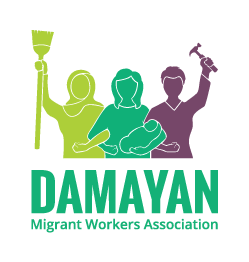Reflections: Learning about Mindanao
Damayan Intern Simone’s reflections of the state of Mindanao. All photos are courtesy of Damayan Staff Member Lydia Catina.
On Wednesday July 22, I attended the CIVICUS event “Human Rights in the Philippines: Focus on Mindanao.” This event intended to bring attention to human rights violations in the Southern Philippines. There were a few speakers at the event, but one of them, Amirah Lidasan, really caught my attention. As a Moro community leader, public opinionist, and investigator of human rights violations, Amirah was extremely knowledgable and passionate. I could hear the pain in her voice as she discussed how Mindanao has been subject to exploitation for years on end and how the Moro people are no strangers to immense suffering.
Mindanao is a land rich in natural resources and minerals varying from pineapples to copper, thus making it an attractive investment for corporations. Most of the land is owned by the Filipino elite and foreign corporations. Consequently, the indigenous people are vulnerable to aggressive industrial projects that contribute to systematic land grabbing and socioeconomic oppression. Agricultural and mining corporations occupy the land while tainting it with chemicals, which ultimately harm the local villagers. However, since the Philippine government prioritizes foreign corporations’ interests over the welfare of its own citizens, it doesn’t hold these outsiders accountable for any damages. The people of Mindanao have tried to voice their outrage, but the government authorizes extrajudicial killings to silence them, for the sake of exporting goods and making profit.
The lack of education is also a major issue for Mindanao. Although education is a universal human right, it is denied to the Moro people, hence rendering the next generation ignorant and academically behind the rest of the world. The schools try to integrate indigenous skills into the standard curriculum, which make the students’ learning more applicable to their lives. Furthermore, Mindanao’s limited access to resources has compelled unlicensed villagers to teach at the schools on a voluntary basis. This combination makes many village schools illegitimate in the eyes of the state. In addition, the Department of Education won’t grant the village schools permits to operate because the schools are accused of teaching students to be against the foreign corporations that occupy their villages.
Prior to attending the event, I didn’t know much about the Southern Philippines, much less about Mindanao. So it was certainly surprising to find out that the U.S. has declared Mindanao as the second front on the War on Terror. I had no idea that the Muslim population in the Philippines was considered such a threat to the U.S. Because of Mindanao’s close proximity to countries that have a significant Muslim population, such as Indonesia and Malaysia, it is deemed susceptible to the influence of surrounding terrorist networks. As a result, there is a heavy U.S. military presence in the villages. Apparently, there are more troops in Mindanao (about 6,000) than Iraq (about 3,000) - which is unfathomable for me. It is not uncommon for foreign troops to murder and rape the villagers, but once again, the Philippine government disregards these crimes in order to maintain diplomatic relations with the U.S.
Sadness. Frustration. Helplessness. These are just some of the few emotions I felt after attending CIVICUS’s event. It is disgusting how major corporations are so indifferent towards causing the indigenous people so much grief. The Philippine government is also to blame, for denying its people basic human rights, such as education and protection from foreign powers. Why would the government want to strip its people of opportunities to better themselves and the country? Its politicians are blinded by greed and are devoid of compassion. It’s about time the Philippine government takes responsibility for its incompetence. I am glad that people like Amirah and NGOs like CIVICUS are making efforts to educate the public about these largely unknown issues in Mindanao.
